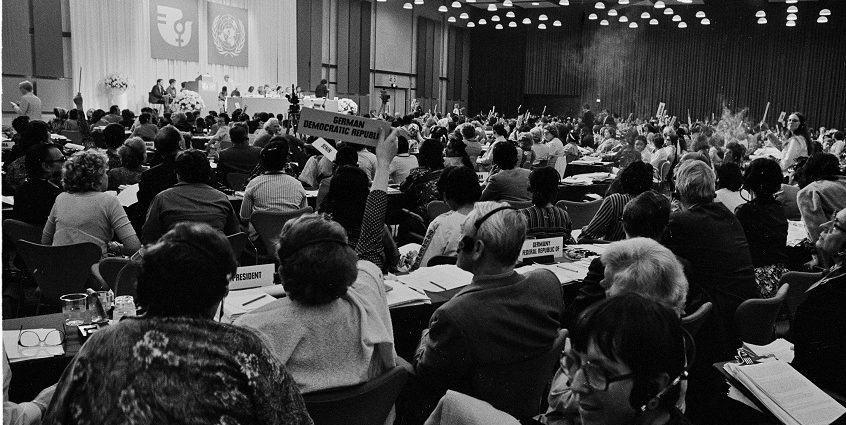Women’s rights are now a well-established concern within the international human rights community. The United Nations Convention on the Elimination of All Forms of Discrimination Against Women (CEDAW) was adopted in 1979 and has been ratified by all but six UN countries. In 2000, the United Nations Security Council passed resolution 1325 on Women, Peace and Security, cementing an understanding of women’s rights into post-conflict practice and peacebuilding. In many ways, the feminist rallying cry – “women’s rights are human rights” – is now a reality.
Much of the academic feminist literature on rights mechanisms such as CEDAW and UNSCR 1325 has been positive, arguing that they provide a framework by which activists can translate human rights ideas from an international to a local context. My recent Politics article questions this line of argument, looking specifically at women’s activism in post-conflict Northern Ireland.
I show how both CEDAW and UNSCR 1325 have been extensively used in the province to fight for women’s rights. CEDAW has been used by multiple women’s groups, largely to argue for greater reproductive rights within Northern Ireland. UNSCR 1325, although not part of the legal framework in the province because the UK government do not consider it to constitute a post-conflict situation, has also played a key role in women’s activism. There is also an all-party group within devolved government at Stormont specifically focussed on UNSCR 1325. Women’s activism in the province is clearly translating international human rights language into the domestic framework of politics and lobbying.
Yet, despite this activity, these mechanisms are having little political or legislative influence on women’s rights. CEDAW has repeatedly referred to the issue of Northern Ireland’s abortion laws in its reports on the UK but, as I illustrate in my article, this is given little consideration in discussion of abortion in the province’s politics. When CEDAW is referred to, it is largely dismissed as being of little relevance to, or having any legality within, the province. Similarly, although a huge amount of energy within the women’s sector is focused on the promise inherent within 1325, formal politics has seen very little movement around it. Whilst the all-party group exists, it is not providing a catalyst for further political action around women’s rights in the province.
I argue in this Politics article that the argument that international rights mechanisms provide a means to translate global rights language to a domestic level is not enough; a welcoming state structure is also important. As such, my article argues for greater consideration of the formal political structure at play when considering women’s human rights mechanisms. For international women’s rights bodies to be effective, there needs to be the opportunity to foment, not just discursive change, but substantial political and legal change.


Discussion